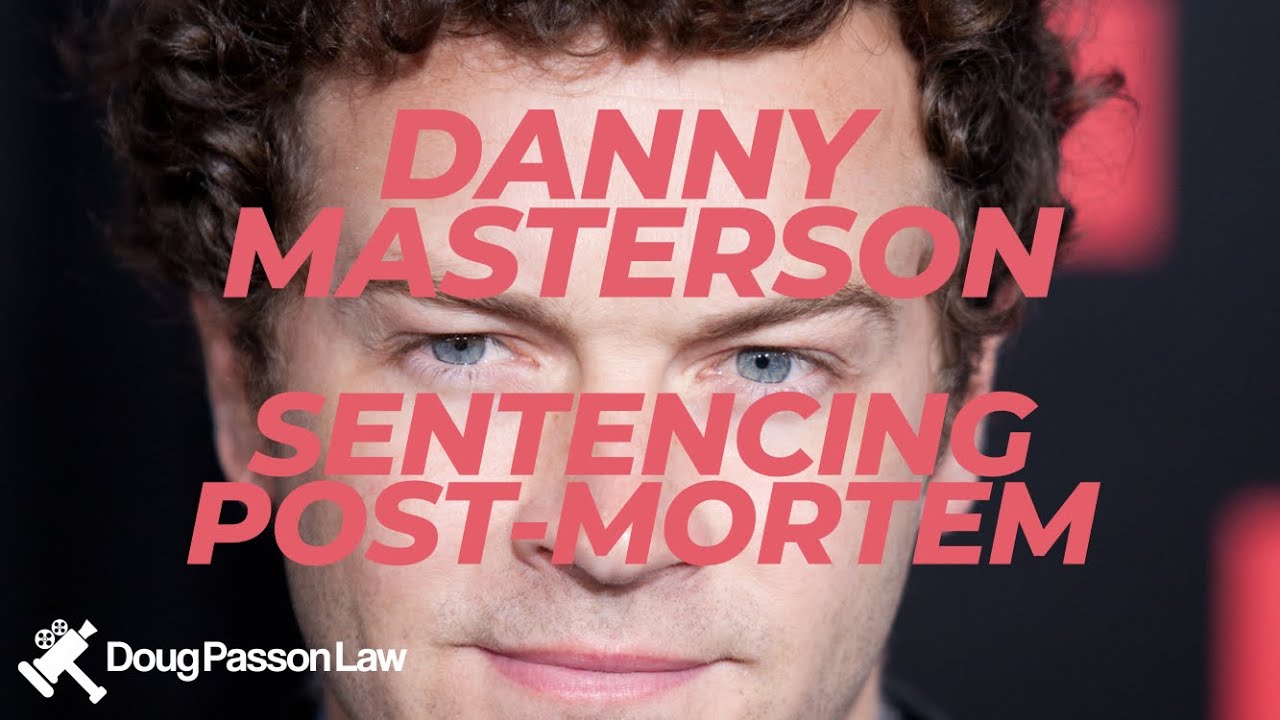Title: Analyzing Danny Masterson’s Sentencing: Lessons Learned and Mitigation Strategies
Introduction:
In a recent high-profile case, actor Danny Masterson was convicted of two counts of forcible rape in California state court, leading to a sentence of thirty years. Masterson’s defense team faced a formidable challenge as their client maintained his innocence throughout the trial. Had they successfully navigated this delicate situation, Masterson could have potentially received a reduced sentence of fifteen years. However, the sentencing proceedings took an unfortunate turn, with significant backlash arising from the letters submitted on Masterson’s behalf, including those from his celebrity friends Ashton Kutcher and Mila Kunis. In this blog post, we will closely examine the various aspects of Masterson’s sentencing, drawing insights and lessons from the case alongside our esteemed colleague, Mark Allenbaugh.
Lessons from Masterson’s Sentencing:
1. Quality over Quantity: The Impact of Sentencing Letters
One key takeaway from Masterson’s case is the importance of quality over quantity when it comes to submitting sentencing letters. We will explore how effective letters can tell a compelling mitigation story, especially for a defendant who maintains their innocence. It is crucial for defense attorneys to lead and actively manage the narrative presented in these letters to ensure they work in their client’s favor.
2. Navigating the Mitigation Narrative
We will delve into the intricacies of constructing a mitigation narrative when defending a client who denies culpability. This requires a delicate balance between presenting mitigating factors while respecting the defendant’s stance. By examining Masterson’s case, we can gain valuable insights into effective strategies for creating a persuasive argument during the sentencing phase.
3. The Pitfalls of Tone Deafness
Masterson’s sentencing was marred by the negative impact of tone-deaf actions. We will discuss the consequences of such missteps and how they can overshadow other mitigation efforts. By exploring the repercussions of insensitivity, we can stress the importance of considering every aspect of the defense’s presentation and its potential impact on the court.
4. Avoiding Manipulation: Family and Sympathy at Sentencing
Using one’s children or family as a sympathy ploy during sentencing can be a dangerous strategy. We will examine the risks involved and discuss alternative approaches that focus on the defendant’s character and positive contributions to society, avoiding potential pitfalls that may arise from exploiting familial relationships.
5. The Power of Emotional Impact: Victim Statements vs. Supporter Statements
An essential aspect of sentencing is the emotional impact generated by victim statements. We will explore the significance of these statements and how they often carry more weight and persuasive power than statements made by supporters. By understanding this dynamic, defense attorneys can better strategize their approach to mitigate the emotional impact on the court.
Conclusion:
Danny Masterson’s sentencing serves as a valuable case study that offers numerous teachable moments for defense attorneys. By analyzing the various aspects of his sentencing, including the impact of sentencing letters, navigating the mitigation narrative, avoiding tone deafness, steering clear of manipulative tactics, and recognizing the power of victim statements, we can glean important lessons that can enhance future defense strategies. To further explore the intricacies of federal sentencing statistics and related resources, visit SentencingStats.com and ZeroPointOffender.com.
Disclaimer: This blog post is intended for informational purposes only and does not constitute legal advice. Readers should consult with legal professionals for guidance specific to their circumstances.
Mark Allenbaugh
Mark Allenbaugh serves as President and Chief Research Officer of SentencingStats.com, Inc.. He is a former staff attorney for the U.S. Sentencing Commission, and a co-editor of "Sentencing, Sanctions, and Corrections: Federal and State Law, Policy, and Practice" (2nd ed., Foundation Press, 2002). Mark is widely regarded as a national expert in Federal sentencing guidelines, analysis and strategy.

